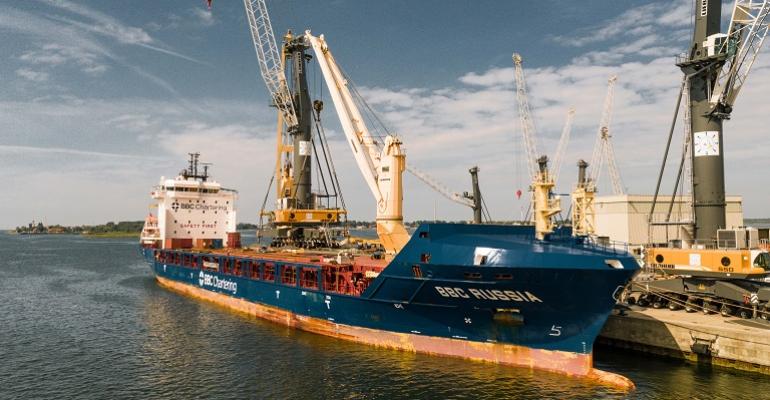The 1,300th crane has left the Rostock premises to its destination to Tema, in Ghana, on the heavy-lift vessel BBC-Russia.
On receiving their new machines, the West African Port of Tema is expanding its fleet of cranes for container handling. This delivery marks the eighth mobile harbour crane from Rostock to the port operator: Ghana Ports and Harbours Authority (GPHA).
"The Rostock international port offers us ideal conditions for shipping the often large-dimensioned equipment. We now load 60-65% of the cranes in fully assembled condition," said Gregor Levold, General Manager - Shipping and Heavy Lift Handling at Liebherr-MCCtec Rostock.
Despite the worldwide lockdown as a result of the Covid-19 pandemic, Liebherr mobile harbour cranes remained functional in ports across the world.
"More than 1,000 colleagues are close to our customers every day in our numerous service companies around the world. Together we are continuously developing our cranes," said Andreas Müller, Sales Director for Mobile Harbour Cranes at Liebherr-MCCtec Rostock.
In future, the mobile harbour crane series is set to run on the fossil-free HVO 100 diesel. The diesel reduces emissions by up to 90% and is derived from renewable raw materials.
Additionally, a revised hybrid drive for the Mobile Harbour Crane will be introduced shortly. The revision will allow users to switch between two different modes: the boost mode which provides extra power for faster handling, and the eco mode which significantly reduces fuel consumption.
Copyright © 2024. All rights reserved. Seatrade, a trading name of Informa Markets (UK) Limited.
Add Seatrade Maritime News to your Google News feed.  |

